The war in Ukraine came suddenly and brutally. Doctors Without Borders (MSF) have been racing against time to help the Ukrainian people and adapt medical aid to the ever-changing – and increasing – needs. MSF is in contact with hospitals around the country to meet their need for medical assistance. Together, we donate medicine and equipment, and we train hospital staff in war surgery and mass casualty incident planning.
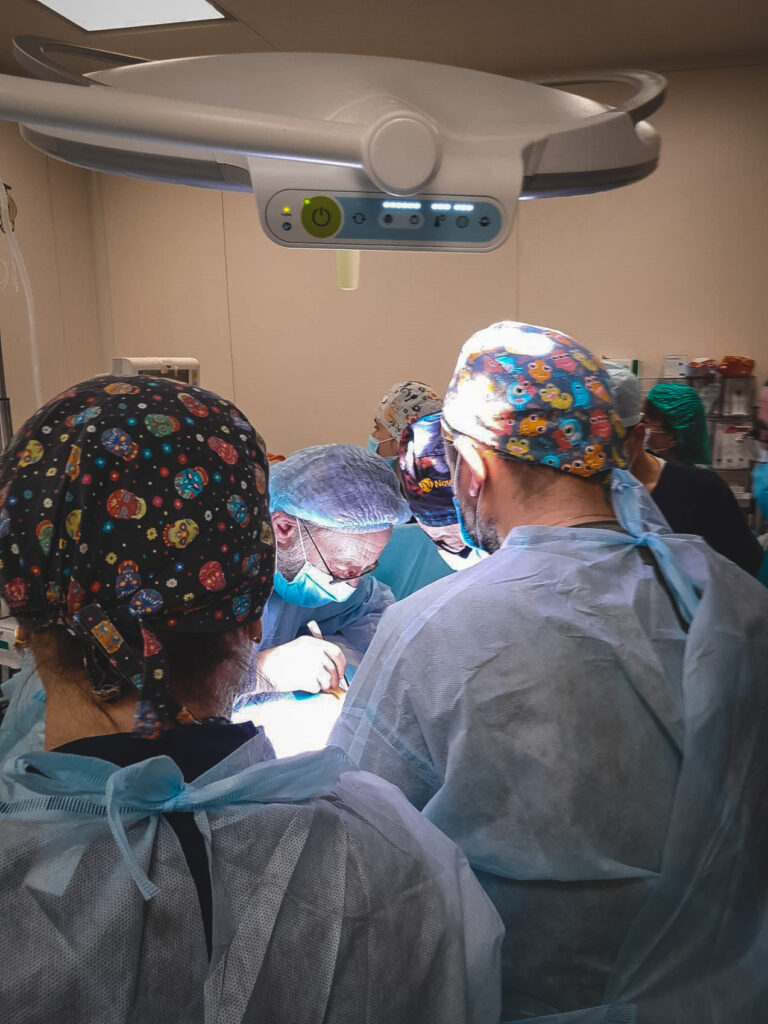
At a hospital in Kyiv, one of MSF’s experienced surgeons shows how to handle shrapnel and gunshot wounds. Photo: MSF
Helping in and around Ukraine
Since February 24th, MSF has brought more than 460 tonnes of medical and relief supplies into Ukraine. MSF is also present in neighbouring countries providing care to people who have fled the war. The Foundation supports MSF’s activities in Ukraine with a 5m DKK grant.
”We decided to support MSF because we know they provide deeply professional and important aid in conflicts all over the world. For us, it was important to help the locals immediately, and we have left it to MSF to decide how the funding is best put to work,” says Kim Nøhr Skibsted, the Foundation’s Executive Director.
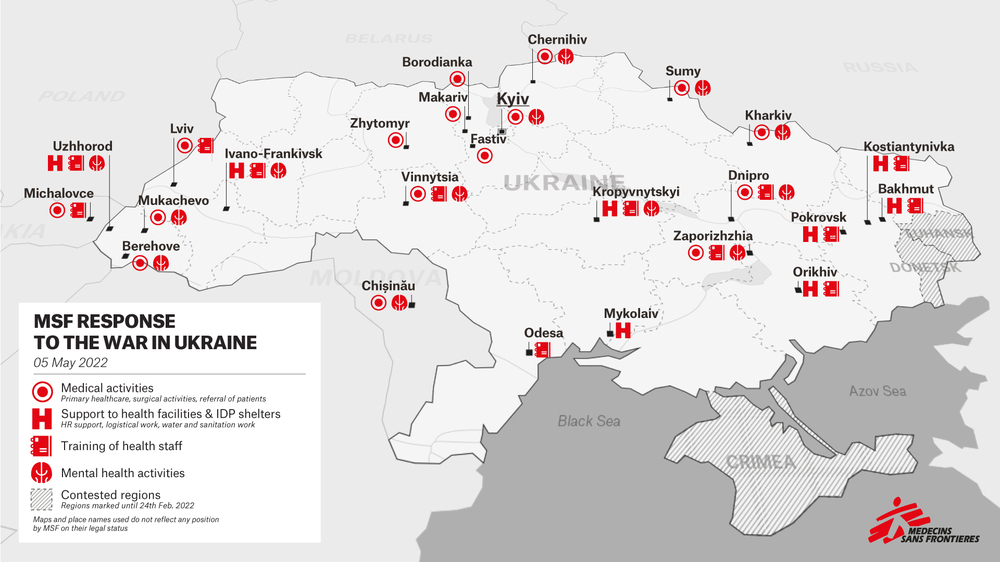
General map from Ukraine with MSF activities. Read more about their activities at Ukraine | MSF medical and humanitarian aid
The generous donation of DKK 5 million from the Poul Due Jensen Foundation makes a vital difference for many people who are directly or indirectly affected by this heart-breaking situation and in the need of medical help and treatment. We help injured and traumatized children and adults, as well as people with chronic diseases, whose lives and health are in danger due to the war. We are sincerely grateful that the Poul Due Jensen Foundation has partnered with us, to make our medical emergency response possible,” says Malin Palmér, General Director at Doctors Without Borders (MSF), Denmark
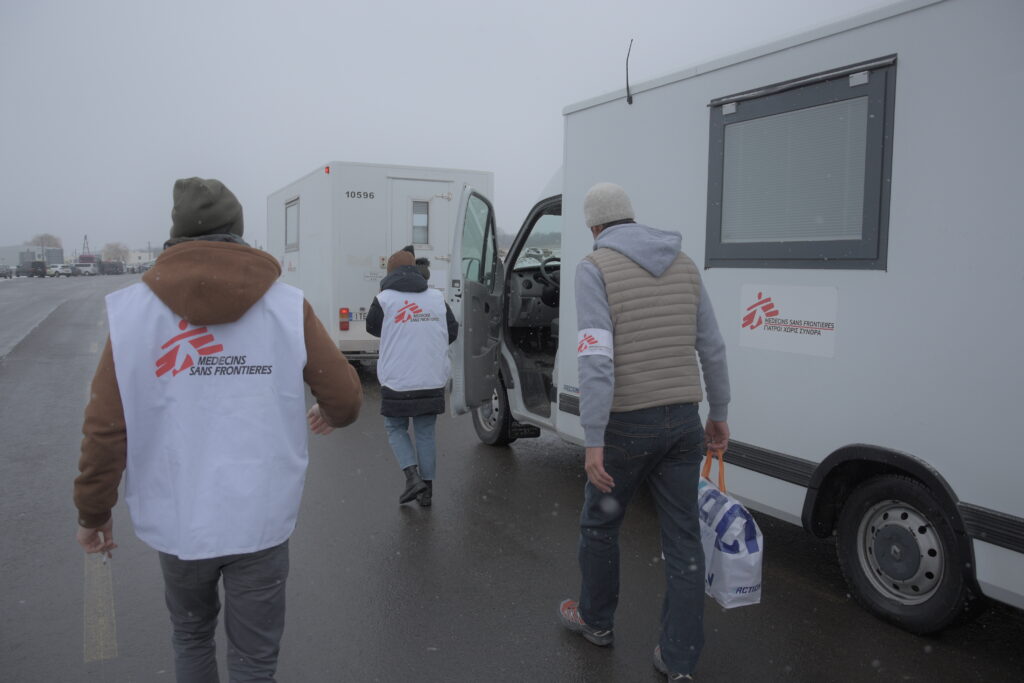
Doctors Without Borders (MSF) was already working in Ukraine when the war broke out on February 24th, 2022. Thanks to our donors, we were able to scale up our work and send emergency teams, medicine, and equipment into the country. In early March, our mobile clinics drove into Ukraine via the Polish border to help the sick and wounded. Photo: Peter Bräunig
Medical care in Kharkiv’s underground
Before the war, about 1.5 million people lived in Kharkiv in the north-eastern part of Ukraine. Since the beginning of the war, bombing has been almost uninterrupted, and air raid alerts goes off several times a day. According to local authorities, some 350,000 people remain in the city. Many have taken refuge in underground metro stations to escape the incessant bombing. Approximately 100 people are staying at each station during the day. This figure multiplies by 3 or 4 during the night.
Especially the elderly and the vulnerable have moved underground. They have been living inside the metro stations for over 40 days. MSF runs mobile clinics in several of the stations. Although there is a curfew at night, our staff can move around the city via the metro tunnels.
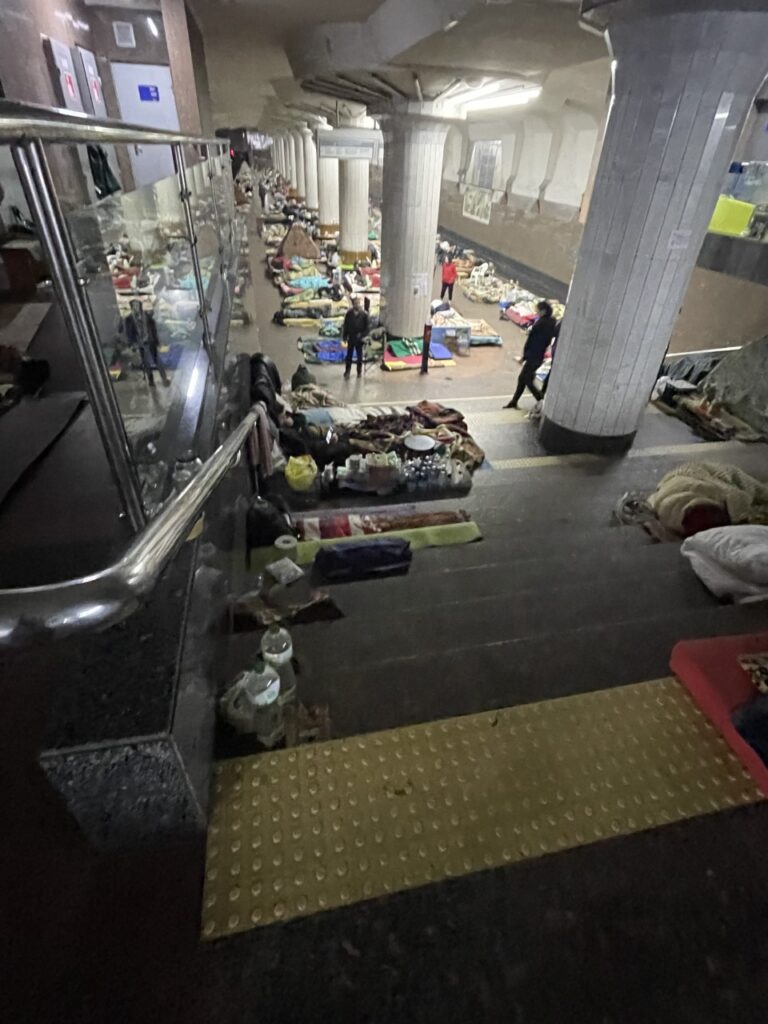
On the platforms of the Kharkiv metro, children and adults have gone underground to be able to sleep safely. The MSF team travels from one metro station to the next. In the evening, they perform numerous medical consultations before rolling out their sleeping bags to stay overnight at the station. Photo: MSF
Respiratory infections and high blood pressure are frequents consequences of life in the cold and humid stations. As fear and stress are naturally prevalent in the underground, MSF staff provide both psychological and medical assistance. To alleviate some of the worst practical problems with the underground living, we have provided microwave ovens, cleaning products and water filters enabling people to get a hot meal and clean drinking water.
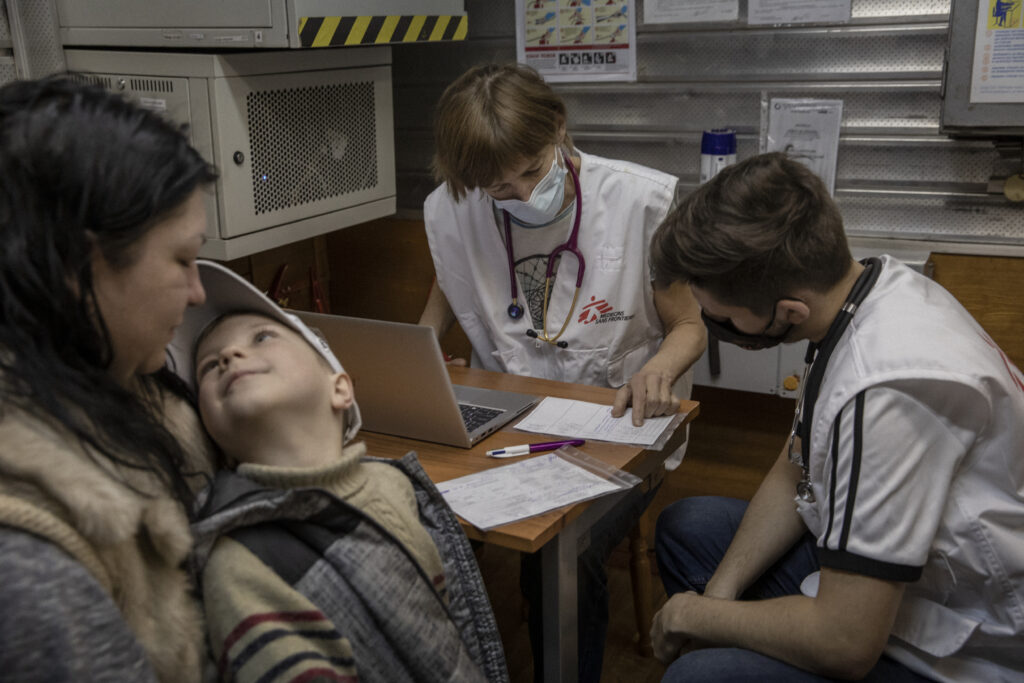
Elena’s 6-year-old son, Kirill, is being examined by MSF staff at a clinic in the Kharkiv metro. He has been having respiratory problems due to the living conditions underground. Photo: Adrienne Surprenant, April 11, 2022.
Medical train to transport wounded to safety
During war and conflict, it is important to get the wounded away from the conflict zones and to hospitals that still function. In Ukraine, the railroad is a lifeline that has brought hundreds of thousands of displaced people to safety. This is how MSF got the idea to develop medical referral train in Ukraine.
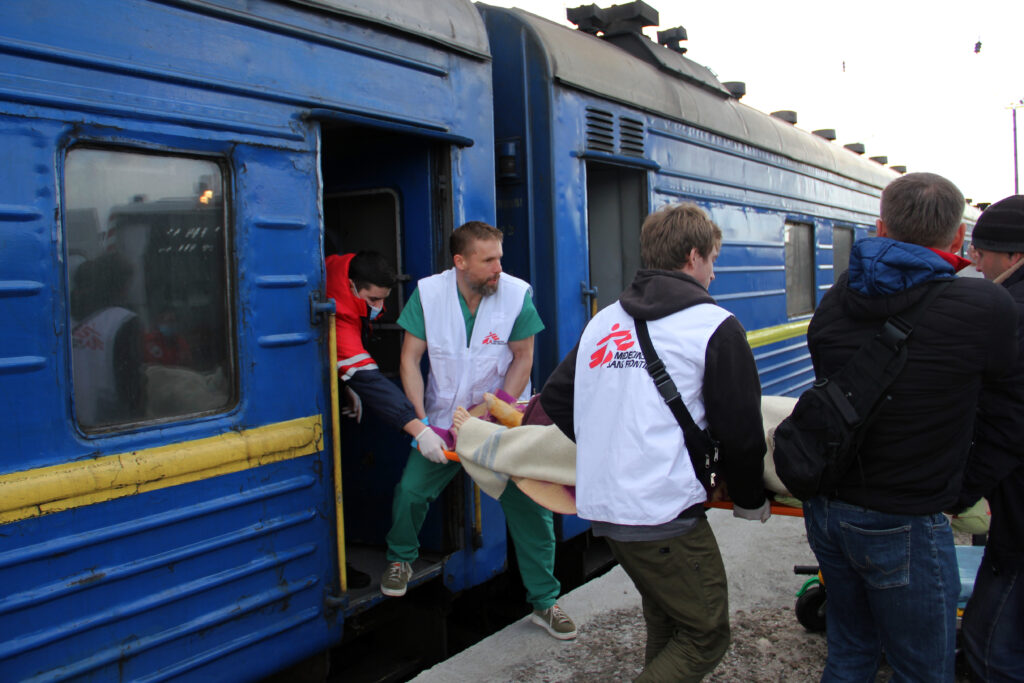
Médecins Sans Frontières / Doctors Without Borders (MSF), in cooperation with the Ukrainian railways and the Ministry of Health, has just completed a new medical train referral of 48 patients, coming from hospitals close to frontlines in the war-affected east of the country.
MSF have more than 570 employees in Ukraine, and more are joining the team every day. Read more about their activities at Ukraine | MSF medical and humanitarian aid

